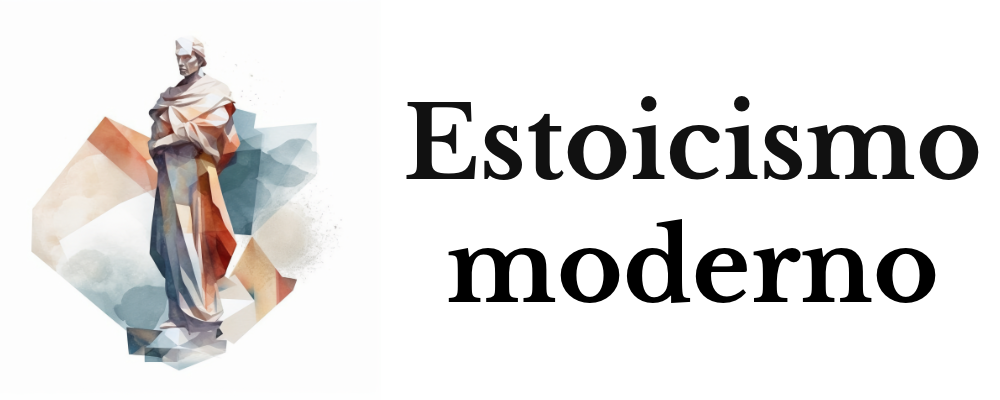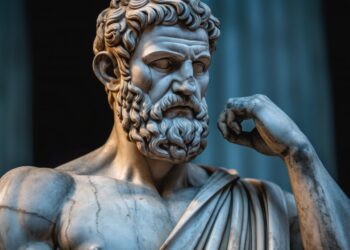Hedonism Through the Ages: A Stoic Perspective
Hedonism, that enigmatic philosophy which places pleasure as the highest good of life, has sailed through the seas of history like a Dionysian barge inebriated. It has been accused and applauded, lived and misunderstood. But what would the Stoics say, those sages of temperance, about this desire-chariot that today seems to know no boundaries or brakes?
The Stoic View on Pleasure
Let us venture into the calm Stoic gardens, where the words of Seneca and Marcus Aurelius still resonate among ancient cypresses. “If you want to be rich, do not add to your possessions but subtract from your desires,” Epicurus wrote, who is often misinterpreted as a hedonist in the vulgar sense. This invitation to moderation is the unofficial anthem of the Stoics.
Stoicism, in its essence, directs us towards virtue and wisdom as the genuine sources of happiness, not the unrestrained pursuit of transient pleasures. As Seneca said: “It is not the man who has little, but he who desires more, that is poor.” This reflection cuts to the root of the perpetual dissatisfaction of the modern hedonist, who often confuses accumulation with fulfillment.
Hedonism in the Digital Age
Contemporaneity has magnified hedonism, with social media acting as the showcase for instantaneous and consumable pleasures. Technology acts as the new Eros, inciting insatiable desires through omnipresent connection. “The life of many people is a constant escape from self,” Marco Aurelius said. Digital distractions, ‘likes’, notifications, are the modern chains that distance us from self-knowledge and Stoic peace.
Self-Determination versus Impulsivity
In our era of instant gratification, it is revolutionary to be Stoic. Let us choose to focus on self-determination, the ability to act according to our own reason and virtue, rather than being swept away by the impetuous stream of passing pleasures. Epictetus taught us that we are not disturbed by things, but by the view we take of them. In this logic, being slaves to contemporary hedonism is nothing more than a misjudged perspective.
Applied Stoic Techniques
To counteract hedonistic distraction, we can practice premeditatio malorum, which involves mentally anticipating potential problems or disturbing desires. By visualizing the destructive power of unbridled hedonism, we can appreciate the intrinsic value of self-control.
Another practice is journaling, reflective writing at the end of each day. What pleasures did I pursue today? Which were in line with virtue, and which with merely fleeting allurements? By taking note and reflecting, we initiate a dialogue with ourselves, promoting clarity and determination.
The Challenge of Moderation
The line between healthy enjoyment and unrestrained hedonism is thin and easy to cross. Here is where Stoic moderation becomes our beacon. “Set a limit to pleasure,” Horace said, a limit dictated by reason and not by indulgence. Let’s build a life in which genuine joy derives from self-realization and not excessive consumption.
Conclusion: A Call to Stoic Virtue
Hedonism, with its deceptive promise of happiness through pleasure, needs to be reexamined through the critical lens of Stoic philosophy. It is not about renouncing enjoyment, but about understanding that true living joy lies in strength, temperance, and wisdom. Consider the words of Marcus Aurelius, who said: “The best revenge is to be unlike him who performed the injury.” Let’s be different from the hedonistic current that harms society with its empty promise.
The Stoic prescription for modern times is clear: let us orient ourselves towards a life of self-awareness, moderation, and virtue. Ultimately, in a world dominated by immediate desire, self-determination is the true and deep happiness. Remember that we are the architects of our fate, and not toys of our pleasures.
Hedonism has navigated through history, but Stoic wisdom offers us the firm helm to navigate our personal history with dignity and fulfillment. So, dear reader, what do you choose? To drift in the seas of pleasure or steer towards the lofty Stoic ideals of clarity, strength, and true satisfaction? Your life is your opera; let virtue be the melody that defines it.







